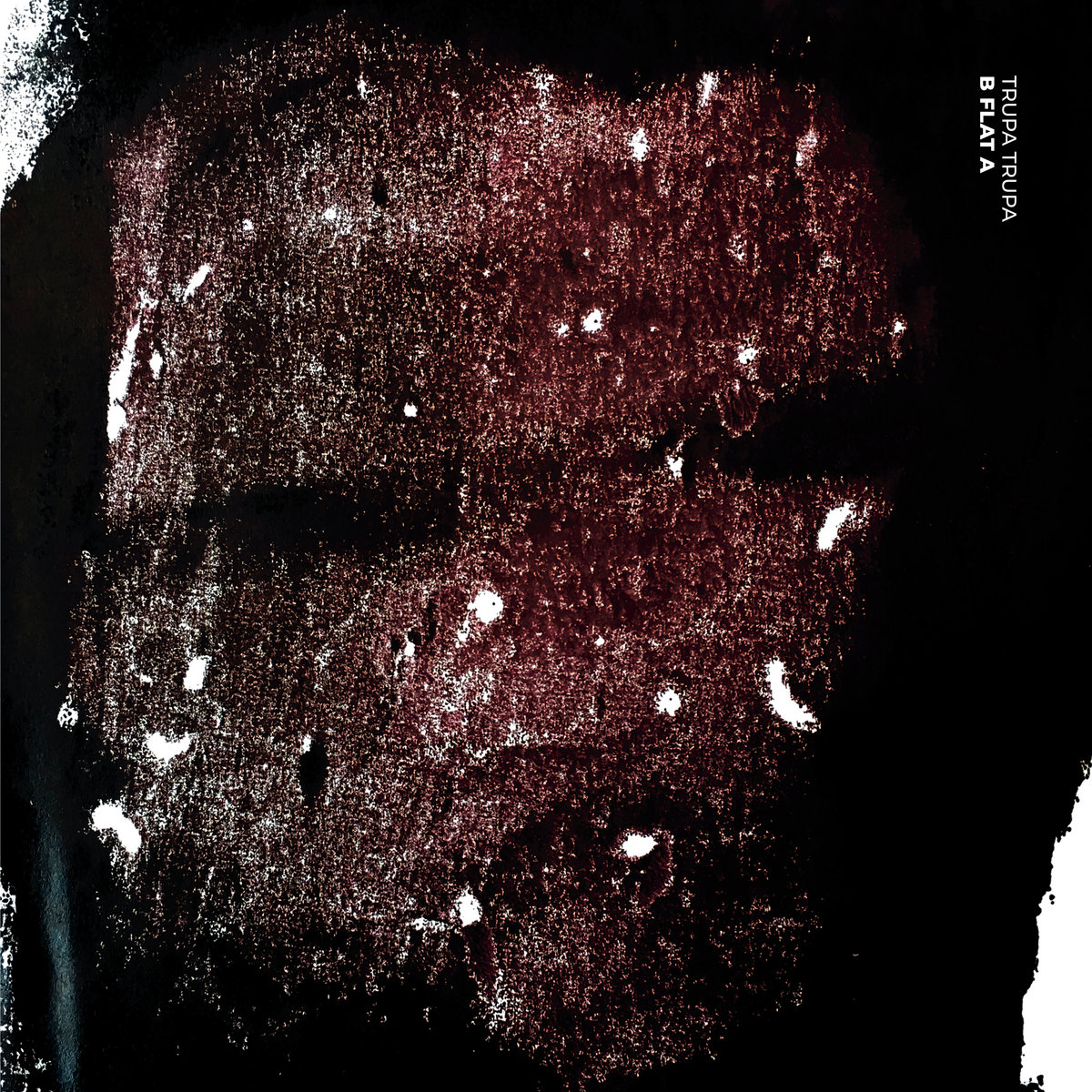I guess technically you could consider Polish outfit Trupa Trupa a rock band. They sure do tick off the boxes: bass, drums, vocals, guitars. And yes, they write songs. So… what’s the catch?
It only takes mere seconds into the band’s new album B FLAT A to realize they aren’t exactly the ax-swinging, foot-on-the-monitor types. Trupa Trupa are a band of intellectuals: journalists, historians, scholars… erudite types who gobble up their daily dose of Nabokov, Nietzsche, and Schopenhauer between tea and biscuits.
Their music isn’t overly flashy with embellished guitar effects or tectonic sonic sprawls: their brand of ‘rock’ manifests more like an ancient ruin, broken structures showing mere remnants of more prosperous pasts. If anything, Trupa Trupa seem more inclined to reduce things to a core essence than to trailblaze and innovate. And peculiarly, by doing just that, they somehow manage to sound like no other band alive.
That being said, the opening track “Moving” faintly resembles Fugazi bereft of their sharp, stinging edges, which somehow makes it more harrowing than any Fugazi song I’ve ever heard. The usual punk rock truisms make way for the sound of inevitability, and accordingly, vocalist and guitarist Grzegorz Kwiatkowski never hams it up to try and match the music’s sinister atmosphere. His voice usually haunts the songs like some unusually benevolent spectre beckoning out to the listener. “Kwietnik” (the Polish word for ‘flower bed’) takes the dread up a notch with its static beats and foreboding bass plucking.
Indeed, there are no wasted movements in the Gdánsk-based band’s vocabulary: they channel some of humankind’s most harrowing chapters through devastatingly simplistic means. With the risk of sounding horribly out-of-sight/out-of-mind (after all, Trupa Trupa’s work has frequently touched on the past and still unresolved atrocities during the Holocaust), there’s something strangely elegant and streamlined about their whole approach as well. Just behold “Twitch” and listen to how effortlessly it achieves this undreamt-of hybrid between 80s post-hardcore and Joy Division’s visceral, oblique post-punk.
Even on the more restrained tracks such as “Lines”, Trupa Trupa’s suggestive powers awaken this morbid fraught within the underbelly. Like a coroner examining a dead body, their music travels in incisive, labyrinthine patterns. Fascinatingly so, Trupa Trupa seem to wield the rock idiom, not for their own personal catharsis per se, but to chase down some form of elusive unbiased truth. Their work feels, above all, like something very functional and necessary, like an expedition or quest to unravel said truth. Even when they court sun-kissed, West Coast pop vestiges, as on “Uniforms”, it still exists in this very liminal, frugal space. The irony seems to speak for itself, especially when the peachiness of it all is promptly cut short by firing squad drum rolls.
“Lit” is another remarkable track, transporting the monumental splendor of Pink Floyd’s “Shine On You Crazy Diamond” to the fog-coated, wraith-like dirges of Slint’s Spiderland. Out of all the tracks on B FLAT A, the Wagnerian “Far Away” employs the most instrumental textures, throwing a bed of synths and brass into the cauldron: not for harmonic purposes, but to create a suffocating, discordant hiss. It’s nevertheless epic in scale and execution, yet somehow still clocks in at barely two minutes. “All And All” once again channels Trupa Trupa’s own withered, corrupted version of Dark Side Of The Moon-level pathos, though stripped of all of its symphonic romance and grandeur.
“Uselessness”, meanwhile, reminds me of a lost demo from Trail Of Dead’s Worlds Apart, albeit bone-dry and unfolding into a skirmish of pure discombobulating noise; it’s as if hearing a radio station glitching out by static interference. The frightful slowecorish “Sick” strikes like a double-entendre to both the artist and the person listening: “I don’t know how to tell you that you’re sick”, Kwiatkowski mutters, seemingly aghast at how mankind can become so voyeuristic towards its own talents for sheer cruelty.
Despite the album’s title bemusingly referencing a major scale, it doesn’t exactly suit Trupa Trupa to end a record on a high note. The closing title track brings us towards a slow, menacing descent, tormented by Kwiatkowski’s barely audible, ghost-in-the-machine spoken vocals. The song travels almost like a decaying tape loop on repeat, never interested in pantomiming resolve or redemption. Their music almost operates as a sentient entity separated from the individuals engineering it.
As a result, this record is a haunting documentation of past and present horrors, all quelled in Trupa Trupa’s ominous sonic spells. Though many stylistics on the record are familiar-sounding, the band has a special knack for sucking them into their own hermetically-sealed void. Borrowing from the fabric of recorded music’s rich history definitely feels like a subliminal language in and of itself, executed with playful inquisition.
While B FLAT A is unflinching in depicting stark realism, it also proves to be decisively light-hearted and generous in its unburdening from the absolute strife it inspired. What a thrilling, refreshing band.

